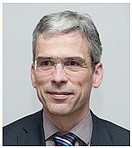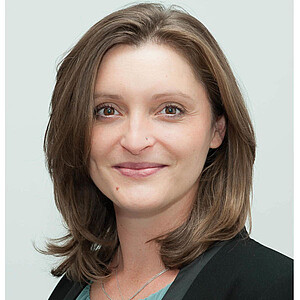The Cultures of History Forum is an online journal that is organized as part of the research area 'History and the Public Sphere' by the Imre Kertész Kolleg at the Friedrich Schiller University Jena. It is concerned with how the countries of Central, Eastern and Southeastern Europe, which more than any other European region have been shaped by the vicissitudes of the twentieth century, address and negotiate their histories in public. Such negotiation is a continuous process that takes place in different spheres: the cultural, social and political. The Forum takes this into account by structuring its contributions along three key areas of concern: museums and exhibitions; public debates and controversies; and official acts, legal procedure and government programmes. We encourage experts from/of the region to examine the ways in which history is presented through images and visual representations in museums and exhibitions. Likewise, we accept contributions that document and analyse local media-based debates that erupt over historical issues and reflect on diverging interpretations and stances. Finally, we welcome contributions that look into specific laws and jurisdiction concerned with the past, or into government programs carried out in order to strengthen specific historical interpretations or narratives and/or to weaken others.
The Cultures of History Forum’s main function is that of a translator and facilitator of dialogue: between academia and the general public, between theory and practice, and between actors and analysts of historical cultures from different national and regional contexts. The texts you can find on our website identify and discuss important exhibitions, debates and political/legal acts in the countries of Central, Eastern and Southeastern Europe that would otherwise escape the attention of those unfamiliar with local languages. Our authors seek to combine academic knowledge with an accessible style of writing, and they take pains to provide balanced accounts of ongoing controversies and practices. By examining cultures of history in a transnational context, the Cultures of History Forum thus wants to counter the notion that a nation’s history belongs only to this nation itself. Ultimately, we aim to contribute to a better understanding of the similarities, differences, entanglements and continuities that shape present-day perceptions and attitudes.
On a more infrequent basis, the Forum also features special focus projects. These can be initiated by guest editors and pick up on recent developments and discussions that concern the entire region, be they on historical or more current political matters. By bringing them together in one focus this allows readers to get a stronger comparative understanding of the debates.
Articles submitted to the Cultures of History Forum go through a rigorous editorial process and peer-review. All published articles receive a DOI-Number and are permanently stored and made available on the publication server of the Herder Institute, Marburg.
Our ideas about the past influence our perceptions of the present. By the same token, history can hardly be understood as something other than a construction in and from the present. A culture of history, more commonly refered to as historical culture, is the interface between these two dimensions of time. It comes about when the past is interpreted in the present and acquires meaning for people’s lives. But its horizon is not limited to the past and present; the future, too, plays a critical role. While we interpret the past in the present, we do so with a view to the future and look at how that future can be shaped.
Our understanding of culture of history is mainly informed by Jörn Rüsen, a theorist of history who coined the term in the 1980s and has been refining it ever since. In Rüsen’s understanding, historical culture (Geschichtskultur) is juxtaposed to historical consciousness (Geschichtsbewusstsein). Both terms are linked with each other in a way that a 'culture of history' (or historical culture) is the specific and particular way in which a society relates to its past while historical consciousness refers to personal attitudes and values that individuals ascribe to the past. Thus, culture of history is the more general term referring to a group’s, society’s or nation’s way of addressing the past whereas historical consciousness is something a person gains in the process of being socialized and learning. There is a strong relationship between the concepts of memory culture and historical culture. However, there are also differences between both concepts. While memory culture is more concerned with processes of how social groups remember certain events in the past, historical culture is a broader term that embraces all manifestations and materializations of historical consciousness in a society.
The complex interplay of temporalities that materializes in historical culture is influenced by a variety of factors. Individual agents and institutions, policies and special interests, and aesthetic ideas and moral conventions all determine how history is represented. According to Rüsen, historical culture features different dimensions, amongst others, an aesthetic, a political and a cognitive one. Analysing and describing a culture of history means to embrace a broader field than that of historiography, since it is not limited to the analysis of academic historical literature. In the Cultures of History Forum we focus specifically on public negotiations of history in debates as well as on history exhibitions and the policy dimension.
In cooperation with:
Herder-Institut für historische Ostmitteleuropaforschung – Institut der Leibniz-Gemeinschaft in Marburg
Other partner institutions:
Europäisches Kolleg Jena - Das 20. Jahrhundert und seine Repräsentationen

Prof. Dr. Joachim von Puttkamer
Director, Imre Kertész Kolleg

Daniela Gruber, M.A.
Former editors:
Dr. Eva-Clarita Pettai (2017-2023)
Dr. Juliane Tomann (2015-2021)
Dorothea Warneck (2011-2014)
Dr. Diana Dumitru
Ion Creangă State University of Moldova
Dr. Bogdan Iacob
Aarhus Institute of Advanced Studies, Denmark/ Academy of Science, Romania
Dr. Jakub Jareš
Institute for the Study of Totalitarian Regimes, Prague, Czech Republic
Dr. Eva Kovács
Vienna Wiesenthal Institute for Holocaust Studies (VWI), Austria
Dr. Katarina Ristić
Global and European Studies Institute, University of Leipzig, Germany
Dr. Joanna Wawrzyniak
Institute of Sociology, University of Warsaw, Poland